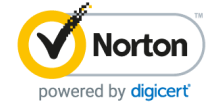How to Do a Background Check on Yourself
Concerned about what might show up the next time you’re applying for a job or renting an apartment? You may be interested in conducting background research on your record trail and online identity.
“Doing a background check” can have different meanings. Private background check companies offer online services that can help you obtain information and records on other people, including yourself, often for a fee. A self background check can also refer to research that you do on your own. This could include researching address histories, contact information, online identities, criminal records and more.
This guide will cover everything you need to know about how to do a background check on yourself.
Here's what you need to know about doing a background check on yourself
Unless you're worried about an application or a specific prior incident on your record, conducting an extensive background check on yourself with a paid service is likely unnecessary. But here are some reasons you would want to think about a background check:
To find out what employers can see
Job seekers anticipating screenings from potential employers can get ahead of potential issues by conducting basic background checks on themselves.
In the application process, employers are likely to — at a minimum — look you up on Google. Every job seeker should be aware of the results that come up under their name in search engines. (It might be time to delete your hot takes on Facebook from 2012.)
Beyond that, employment background checks can be rigorous and may involve work histories, an academic record search, a criminal record check and a Social Security number trace (also called an SSN trace). In some industries, employees are subject to regular background checks every few years, so it's not just applicants who have to go through these. Researching your own background first, regardless of which situation you’re in, can provide peace of mind.
By the way: It might be worth taking the time to brush up on the laws around employer background checks. Federal policy states that employers can legally inquire about your background and require a background check — with some conditions. Employers can’t ask for medical information until they actually offer you a role, and they’re generally not supposed to ask for genetic information. They’re also required to treat you the same as anyone else without regard for your race, sex, religion and other protected factors.
Privacy concerns
Are you worried about information like your address, phone number, email, names of relatives and other details being available online for anyone to access?
Unfortunately, it can be difficult to maintain total privacy due to the sheer number of records that exist and the mass distribution of certain datasets. But you can take action to remove your info from popular data broker websites.
If you have a criminal history
Criminal records — including those with misdemeanors — can show up in the job application process or during tenant screenings for house and apartment rental applications.
For some job seekers, criminal records can be a hurdle to employment, but there are resources to help folks overcome related challenges in the job search process.
A background check that surfaces one’s criminal history can show a person what employers will see. Also, if you've been involved in civil lawsuits and want to know what records are public, that would be another reason to consider a background check.
You were denied for an apartment application
In the event that you're denied an apartment application, you may want to conduct research to find out what was the basis of the denial. If the reason for the denial wasn't given, it could be as simple as your income or credit score being too low to qualify. Checking your credit report is a good first step here.
In some states, landlords can also deny applications based on criminal history, past bankruptcy or other possible incidents in an individual's record. More extensive background research may be necessary in these scenarios.
You have fraud concerns
Doing a background check probably isn't your top priority if you find out you've been a victim of identity theft. With that said, checking your credit report (and credit score) is crucial in the event of financial fraud. It's also a key step in a self background check, as your credit reports can show if someone is using your identity or taking out accounts in your name.
Types of background check research you can do on yourself
The main categories of background check research you can do on yourself include credit checks, online identity research and criminal record checks.
Conduct online searches
Any self background check should involve a dive into your digital footprint. To start, look yourself up in Google, and check other search engines like Bing, Yahoo and DuckDuckGo, too. In addition to your name, try searching your usernames and email addresses to find additional links associated with your identity.
You can then look up your name on background check sites like AdvancedBackgroundChecks.com or CyberBackgroundChecks.com, which offer limited free functionality.
“People search” tools compile data from various sources, allowing anyone to search a name and pull possible addresses, emails, phone numbers, relatives and more. You can (and should) run these same searches on yourself. This step will show you what address history and contact information is out there.
Some people search sites and background check tools claim to include employment records, criminal records and traffic offenses — though these features may require payment.
Here are some people search websites with free tools:
These are just a few of the dozens of people search sites out there. Overwhelmed by how many websites have your information? In some cases, you can request to be removed from the sites, but with dozens of different data brokers collecting data, it's tricky. Google does have some resources if you're concerned about personal information in results.
If you're applying for a job, or just for peace of mind, you can also look up all of your old social media activity.
Delete old content as you feel is appropriate. Even less-obvious accounts like Venmo and Spotify can have public profiles making your activity available to others (former President Joe Biden had to learn that the hard way). You may want to change your privacy settings to avoid sticky situations.
Check your credit report
During this process, make sure to get a copy of your credit report by visiting AnnualCreditReport.com. You can request free weekly online credit reports from Equifax, Experian and TransUnion. These reports show an individual's credit accounts and balances.
Although credit reports do not show credit scores, lenders and landlords will be looking at your report, so you want to arm yourself with the same information.
Should you identify any inaccuracies or items you would like to dispute, you will need to follow the appropriate procedures. It would also be wise to consider a credit freeze, which helps prevent bad actors from obtaining lines of credit using your name.
Check criminal records
Note: You can skip this step if you already know you don't have criminal records.
Given that background checks typically involve a search of criminal records, it's crucial for anyone with these records to know what potential red flags employers and landlords may find.
There are some national criminal record search tools, but you can also search for these records locally on court websites. A good first step would be figuring out which court has your information and visiting that court's website for information on how to access their records.
Keep in mind that state laws vary in terms of what criminal records can be considered in background checks — and for how long. In some states, a seven-year rule prevents older criminal records from being reported. In other states, a felony can continue to show up in background checks unless it's sealed or expunged.
Verify other records
While not always necessary, in specific situations an individual may want to verify other records like professional licenses, education records or wage history as part of a background check. This type of research could involve searching government license databases or requesting academic transcripts from your university.
How to do a background check on yourself FAQs
Can you do a background check on yourself?
How do you fix background check errors?
Do I need to pay for a background check on myself?
Summary of this background check guide
Conducting a background check on yourself involves multiple steps: Checking your credit, searching criminal records (if applicable) and looking up your digital footprint. During the background check process, you can dispute inaccuracies, report fraud and clean up your online identity.







 Privacy Secured
Privacy Secured